10 Things We Miss About CM Punk In WWE
UFC 225 was a hard watch...
CM Punk's one-sided loss to Mike Jackson this past Saturday night at UFC 225 provoked a range of responses. While some chastised Punk for continuing what seems like a losing battle as a lesser-skilled cage fighter, as well as UFC for giving a fighter of Punk's limited abilities such a prominent spot, many offered genuine kind words, praising Punk for following a far-off dream.
To those who miss his presence inside a WWE ring, rough losses to Mike Jackson and Mickey Gall have done nothing to fragment his overall legacy. The fact that Punk's name is still the go-to chant for annoyed and spiteful spectators more than four years after his WWE exit is proof enough of Punk's persistent fame. While it may not exactly be respectful when a few thousand ticket-buyers chant for Punk when today's wrestlers are trying to work, the point is taken: Punk is to them an absent king, but a king nonetheless.
I noted recently on Twitter that as of June 25, the distance between Punk's last match and that date will be longer than the distance between Shawn Michaels' WrestleMania XIV "last" match and his return at SummerSlam 2002. I know time flies and all, but geez.
From his most true-blue fans, to those who at least remember elements of Punk fondly, CM Punk is to varying degrees a missed presence on WWE programming. Here are some of the qualities of Punk's that we all miss the most.
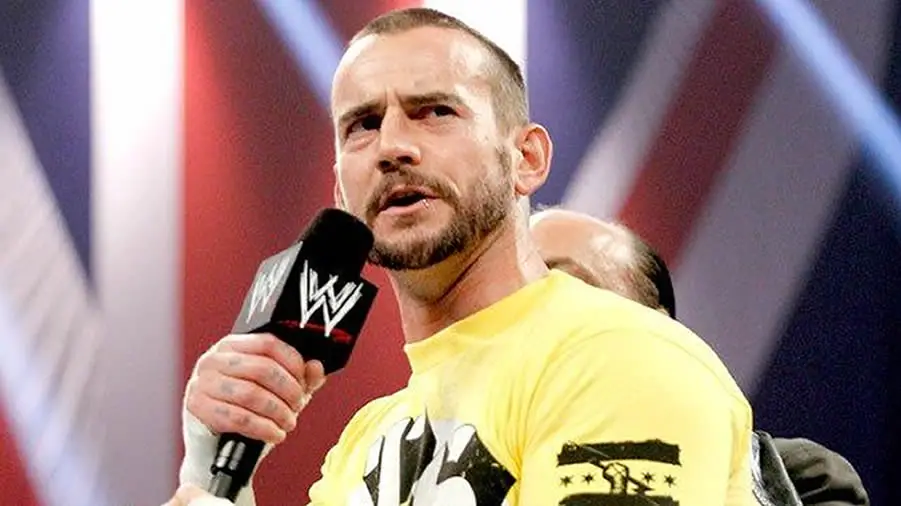 WWE
WWE
Chances are, you've seen Sam Roberts as a talking head on WWE pay per view pre-shows. Roberts is a New York-based radio host, and an unabashed wrestling fanboy, whose cheerful nerd-dom was used as comic fodder on the old Opie and Anthony Show. Once back in 2011, Roberts played some soundbites of the "Pipe Bomb" promo on the show, and while comedian Jim Norton was initially cracking jokes, he ended up finding Punk compelling. He explained that because Punk wasn't yelling like your stereotypical wrestler, but rather speaking smoothly with a calm demeanour, he found Punk much more interesting to listen to.
It's a tough balance - an over-the-top promo can get people's attention, but it can also come off as cliched and silly. A more casual line-reading can sound more human-like, but have the same excitement level as watching worms crawl. Punk has, time and time again, demonstrated the ability to speak in a relaxed tone, yet have enough natural command as to keep all eyes on him.
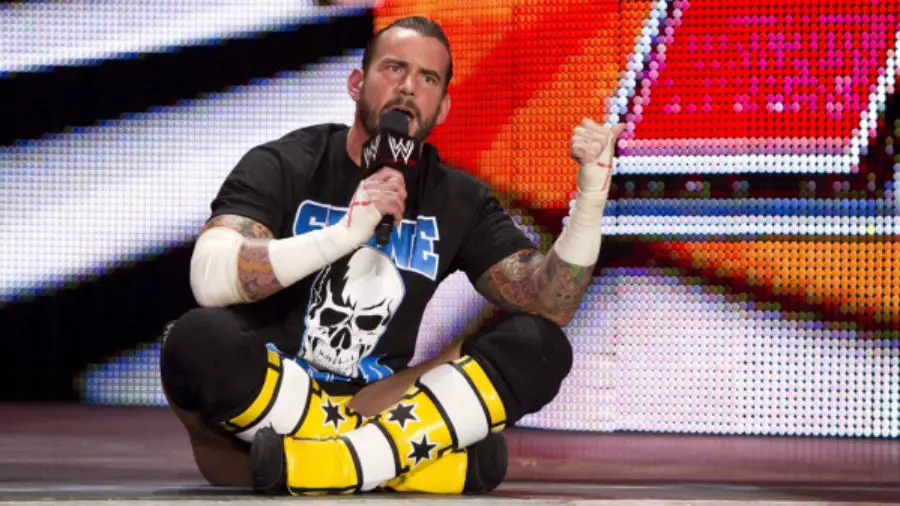 WWE
WWE
There were a few too many obvious tells to the "Pipe Bomb" promo for it to have been a total unscripted shoot. WWE clearly approved of Punk's insubordinate diatribe if they were shooting him from all angles with the TV cameras, instead of panning to a wide shot and cutting the mic sooner. That didn't stop thousands upon thousands of fans from flooding social media, breathlessly asking, "Was that real?!"
Whether it was that speech, or the Art of Wrestling podcast with Colt Cabana (now *that* was a shoot), or with many other promos and interviews that he's done in and out of the ring, Punk has had no problem speaking his mind. In an overly sanitized world where commentators have to cheerfully put over the countries they're in, or performers have to toe the company line otherwise, getting Punk's gut feelings infused into his words is pretty damn refreshing.
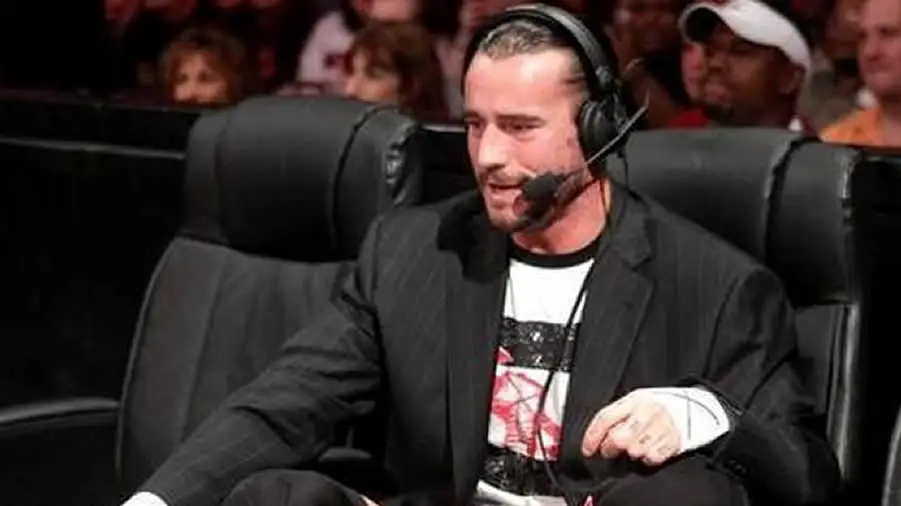 WWE
WWE
Some fans that value versatility in their wrestlers came to enjoy Punk's several-week turn as a colour commentator on Raw earlier this decade. After a year-and-a-half of suffering through one insidious guest host after another on the most transparently-superficial episodes of Raw in history, Punk made the final months of 2010 worth sitting through.
Whether he was raking Michael Cole over the, well, coals with callbacks and the noting of continuity errors, or he was openly referencing real-life touchy subjects (Alex Riley's recent DUI, or faintly praising Ted Turner, alluding to the troubling alliteration of King Kofi Kingston), Punk was untethered to anything except his own stream of consciousness. The clear apprehension in the voices of Michael Cole and Jerry Lawler whenever Punk went to say something (because they had *no idea* it might be going) was a nice alternative to the robotic commentary we tend to get otherwise.
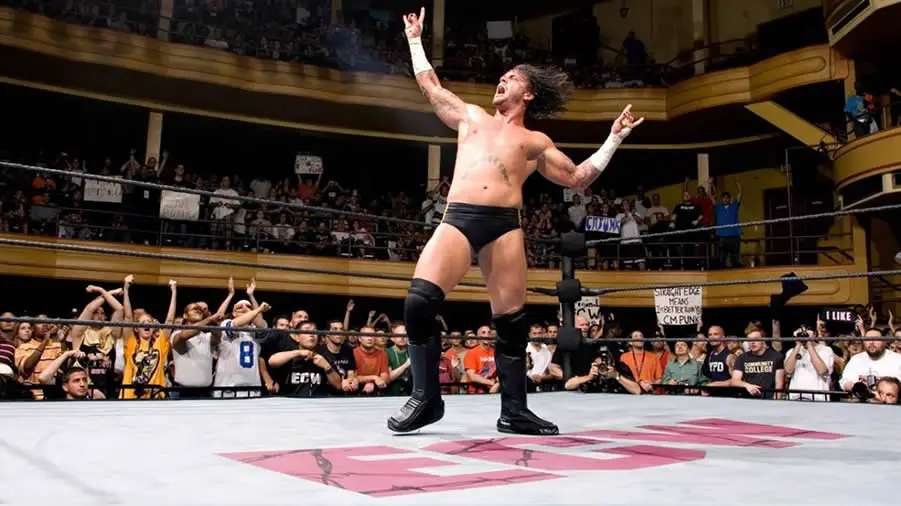 WWE
WWE
You know how some wrestlers are well-regarded as heels, to the point where they turn face and are suddenly a less-enjoyable character? You know, the ones who are imbued with too much namby-pamby goodness that they lose their cooler edge? Punk's very rarely had that problem. Whether he was on top of the roster as an anarchist champion of the people, or as an unrepentant asshole that let loose with maddening statements, Punk thrived as a star on either side of the fence.
To be fair, in his near eight years with the company, Punk mostly played the same character at different levels of intensity. Other than his turn as the Straight Edge Society's Koresh-like leader, Phil Brooks didn't have to take too many leaps in playing CM Punk before the TV cameras - face Punk and heel Punk were basically a stone's throw apart, and it all came down to the character's present motivations. Some (okay, most) will tell you, "Heel Punk was cooler!", because everybody should be a heel, apparently. But Punk was rarely damaged by his alignment.
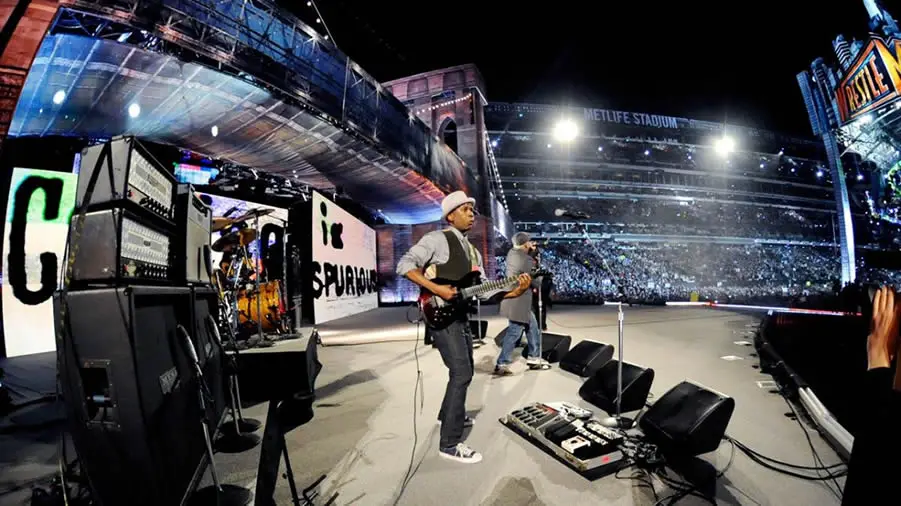 WWE
WWE
Even a Punk detractor has to admit that he has pretty good taste in music. As much as I enjoy Killswitch Engage and other melodic metalcore bands (Shadows Fall makes great workout music), it's hard to beat the sick riffs of funk metal at its finest, and Living Colour personifies that style to a T.
While some modern WWE themes stand out from the pack (Bobby Roode comes to mind), we're not exactly in the golden age of entrance music any more. Maybe that's just the crusty old fan in me, but when Punk first sauntered out to "Cult of Personality" on Raw seven years ago, it lent even more of a star quality to the company's most head-turning talent of the day. It's hard for the CFO$ Loop Machine to replicate that feel.
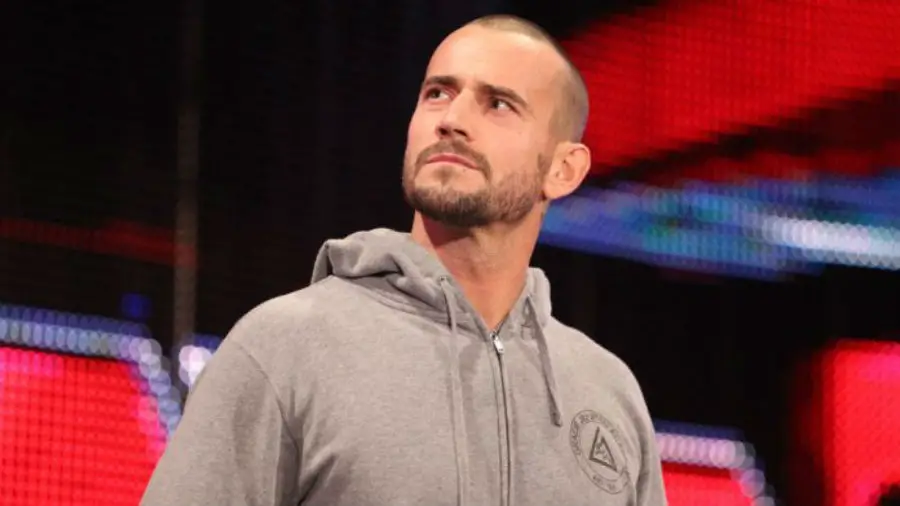 WWE
WWE
Part of the reason that the "Pipe Bomb" and other caustic Punk speeches hit their mark was because of the painful truths in his words. What made Punk himself the avatar of the audience is that so many fans that watched over the years could relate - they've wanted to cut those same promos themselves.
It was easy to relate to Punk because he saw the flaws that the common fan saw. Punk himself has at times come off as a regular guy who loves his baseball and hockey, his comic books, and his punk rock. He's laid himself bare in his words that are oftentimes spoken from his heart. It was easier to see him as an underdog than, say, a certain ex-Shield member that is portrayed as underprivileged and held down, while receiving countless opportunities over the last four years. Kid Rock may not be all that well-liked among wrestling fans, but he was right when he said, "When it's real, you'll feel it."
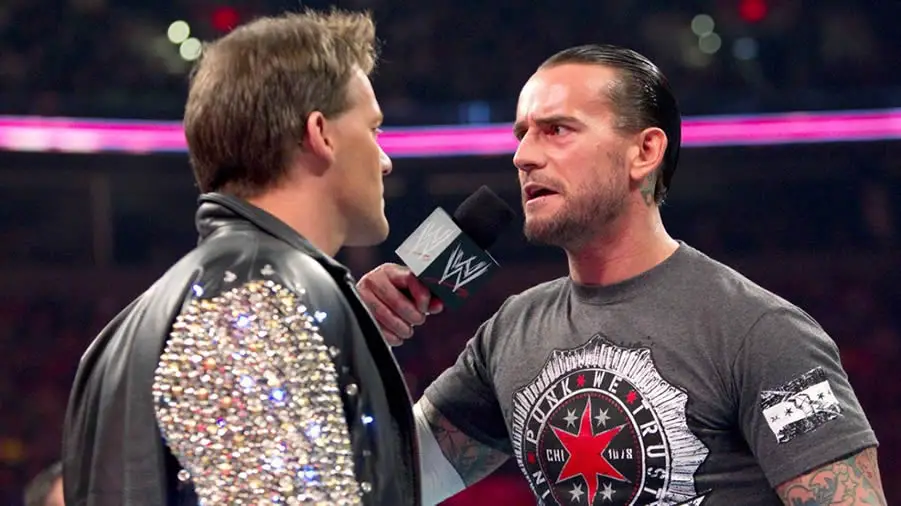 WWE
WWE
In truth, the idea of CM Punk existing on the tightly-scripted WWE plane felt like dropping an incompatible species into the wrong habitat. For someone that speaks their mind as much as Punk does, he presented a very real (and welcome) danger to WWE broadcasts, as indicated in prior examples like the "Pipe Bomb" and his riff-tastic commentary stint.
In this decade, very few wrestlers have ever brought that element of precariousness to WWE programming. Punk, along with the likes of The Rock and Paul Heyman, have ever elicited the feeling of, "Uh oh, he's got the mic; what's he going to say?" When the diet otherwise consists of rote dialogue that gets edited, re-edited, and hashed out by performers that are supposed to believe in what they're saying, someone like Punk was the ideal contrast to that kind of artificial presentation.
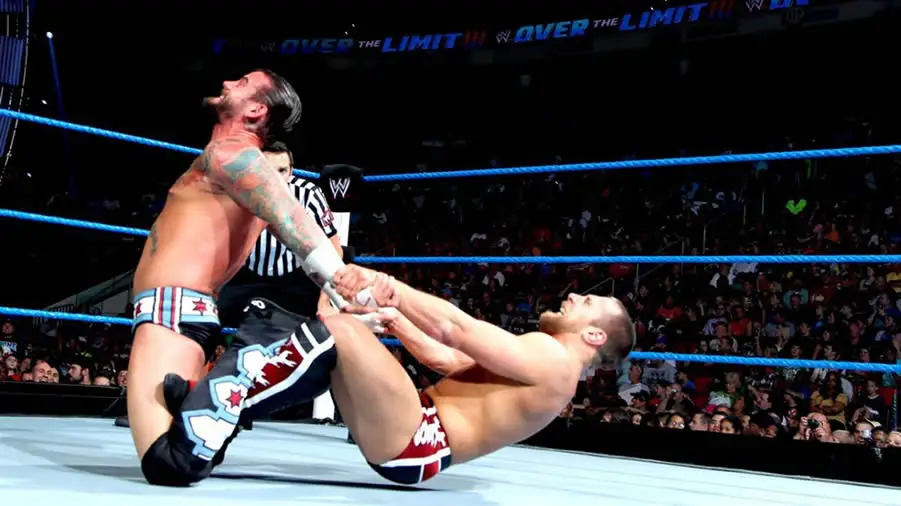 WWE
WWE
Selling is a hot topic for a lot of wrestlers (veteran and young) and fans (older and younger) online. It can be a bit frustrating for older ring artists to see today's wrestlers do a sequence of 40 arcade-style flips and bumps, and not sell a single one for more than three seconds. That's a slight exaggeration, but you get what I mean.
For Punk at his finest, check out the 2010 Royal Rumble when The Great Khali clamps him in the Jason Voorhees head squeeze. Punk's overt grunts and groans as Khali presses his temples adds a lot more to a match than the eighth or ninth tope suicida. Sure, Punk through his top-shelf indy heritage could have had those sorts of matches, but he demonstrated so much more as a performer. Through grimaces, raised eyebrows, guttural cries, and intense glares, Punk is one of the better in-ring actors of this millennium. Perhaps he was born 20 years too late?
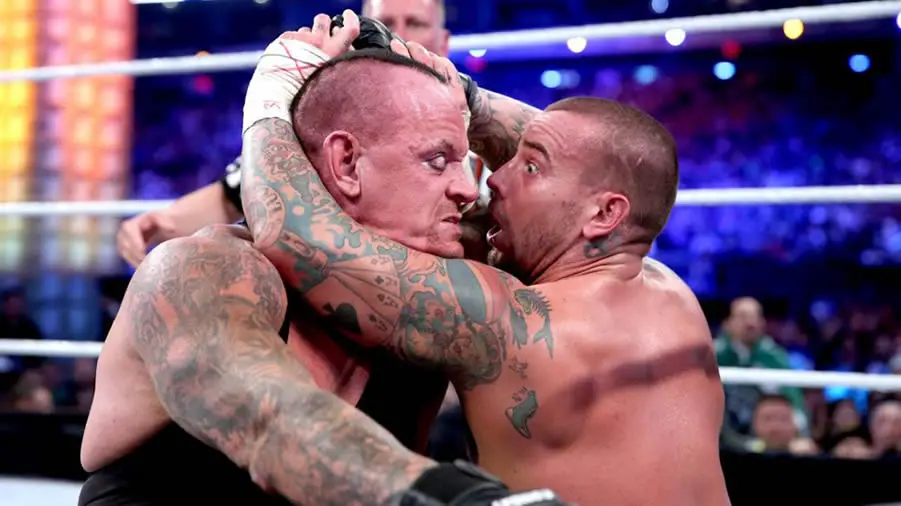 WWE
WWE
Punk made his displeasure clear about not getting a chance to go on last in a WrestleMania main event, and it's easy to understand his gripe. He would've settled for a fast elimination in Rock vs. Cena II if it meant getting the main event on his career resume. Instead, he had to settle for stealing WrestleMania 29 alongside Undertaker, in what was easily the best match of a basic WrestleMania otherwise.
It wouldn't be the only time that Punk was in the best match of a given PPV without going on last. Capitol Punishment, Royal Rumble, Over the Limit and Money in the Bank 2012, Payback and SummerSlam 2013 (okay, his match with Brock ties Cena/Bryan at a full-monty each), they all immediately spring to mind. I'd even dare throw in WrestleMania XXVIII (never thought Undertaker/Triple H in the Cell was as great as others believe, but that's subjective). Point is, Punk really did make some magic inside that ring.
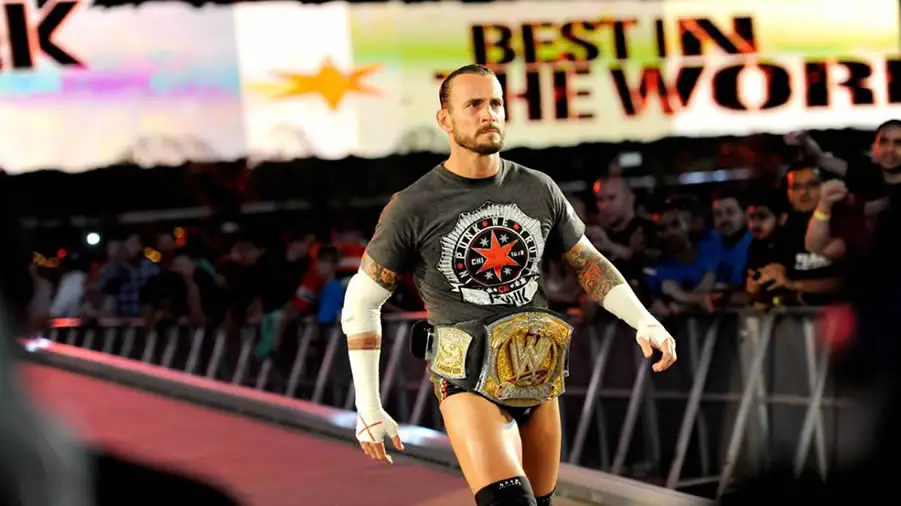 WWE
WWE
There's a lot of pressure to deliver in WWE, especially on the main event level. The hardest-working, most gifted wrestlers break through the glass ceiling into the pantheon tier, only to lack that fundamental "something extra" to justify their continued residence, perhaps the drive to stay on top. Over the years, there have been wrestlers that reportedly asked to go back to the upper-midcard, unable to handle this kind of pressure.
On the other hand, Punk thrived on being the "Best in the World", a moniker that he truly believed he earned through his tireless toil. While some wrestlers give off the, "Aww shucks, I'm just honoured to be here" vibe, Punk wanted to be the top guy, and it showed in everything he did. Carrying himself like an undoubted main eventer, especially when he actually *did* main event shows like Money in the Bank 2011 and Royal Rumble 2013, made it much harder to justify using Punk as anything except a top guy.
To those who miss his presence inside a WWE ring, rough losses to Mike Jackson and Mickey Gall have done nothing to fragment his overall legacy. The fact that Punk's name is still the go-to chant for annoyed and spiteful spectators more than four years after his WWE exit is proof enough of Punk's persistent fame. While it may not exactly be respectful when a few thousand ticket-buyers chant for Punk when today's wrestlers are trying to work, the point is taken: Punk is to them an absent king, but a king nonetheless.
I noted recently on Twitter that as of June 25, the distance between Punk's last match and that date will be longer than the distance between Shawn Michaels' WrestleMania XIV "last" match and his return at SummerSlam 2002. I know time flies and all, but geez.
From his most true-blue fans, to those who at least remember elements of Punk fondly, CM Punk is to varying degrees a missed presence on WWE programming. Here are some of the qualities of Punk's that we all miss the most.
10. Casually-Delivered Promos
 WWE
WWEChances are, you've seen Sam Roberts as a talking head on WWE pay per view pre-shows. Roberts is a New York-based radio host, and an unabashed wrestling fanboy, whose cheerful nerd-dom was used as comic fodder on the old Opie and Anthony Show. Once back in 2011, Roberts played some soundbites of the "Pipe Bomb" promo on the show, and while comedian Jim Norton was initially cracking jokes, he ended up finding Punk compelling. He explained that because Punk wasn't yelling like your stereotypical wrestler, but rather speaking smoothly with a calm demeanour, he found Punk much more interesting to listen to.
It's a tough balance - an over-the-top promo can get people's attention, but it can also come off as cliched and silly. A more casual line-reading can sound more human-like, but have the same excitement level as watching worms crawl. Punk has, time and time again, demonstrated the ability to speak in a relaxed tone, yet have enough natural command as to keep all eyes on him.
9. Brutal Honesty
 WWE
WWEThere were a few too many obvious tells to the "Pipe Bomb" promo for it to have been a total unscripted shoot. WWE clearly approved of Punk's insubordinate diatribe if they were shooting him from all angles with the TV cameras, instead of panning to a wide shot and cutting the mic sooner. That didn't stop thousands upon thousands of fans from flooding social media, breathlessly asking, "Was that real?!"
Whether it was that speech, or the Art of Wrestling podcast with Colt Cabana (now *that* was a shoot), or with many other promos and interviews that he's done in and out of the ring, Punk has had no problem speaking his mind. In an overly sanitized world where commentators have to cheerfully put over the countries they're in, or performers have to toe the company line otherwise, getting Punk's gut feelings infused into his words is pretty damn refreshing.
8. His Commentary
 WWE
WWESome fans that value versatility in their wrestlers came to enjoy Punk's several-week turn as a colour commentator on Raw earlier this decade. After a year-and-a-half of suffering through one insidious guest host after another on the most transparently-superficial episodes of Raw in history, Punk made the final months of 2010 worth sitting through.
Whether he was raking Michael Cole over the, well, coals with callbacks and the noting of continuity errors, or he was openly referencing real-life touchy subjects (Alex Riley's recent DUI, or faintly praising Ted Turner, alluding to the troubling alliteration of King Kofi Kingston), Punk was untethered to anything except his own stream of consciousness. The clear apprehension in the voices of Michael Cole and Jerry Lawler whenever Punk went to say something (because they had *no idea* it might be going) was a nice alternative to the robotic commentary we tend to get otherwise.
7. Excelling In Either Alignment
 WWE
WWEYou know how some wrestlers are well-regarded as heels, to the point where they turn face and are suddenly a less-enjoyable character? You know, the ones who are imbued with too much namby-pamby goodness that they lose their cooler edge? Punk's very rarely had that problem. Whether he was on top of the roster as an anarchist champion of the people, or as an unrepentant asshole that let loose with maddening statements, Punk thrived as a star on either side of the fence.
To be fair, in his near eight years with the company, Punk mostly played the same character at different levels of intensity. Other than his turn as the Straight Edge Society's Koresh-like leader, Phil Brooks didn't have to take too many leaps in playing CM Punk before the TV cameras - face Punk and heel Punk were basically a stone's throw apart, and it all came down to the character's present motivations. Some (okay, most) will tell you, "Heel Punk was cooler!", because everybody should be a heel, apparently. But Punk was rarely damaged by his alignment.
6. Cult Of Personality
 WWE
WWEEven a Punk detractor has to admit that he has pretty good taste in music. As much as I enjoy Killswitch Engage and other melodic metalcore bands (Shadows Fall makes great workout music), it's hard to beat the sick riffs of funk metal at its finest, and Living Colour personifies that style to a T.
While some modern WWE themes stand out from the pack (Bobby Roode comes to mind), we're not exactly in the golden age of entrance music any more. Maybe that's just the crusty old fan in me, but when Punk first sauntered out to "Cult of Personality" on Raw seven years ago, it lent even more of a star quality to the company's most head-turning talent of the day. It's hard for the CFO$ Loop Machine to replicate that feel.
5. Relatability
 WWE
WWEPart of the reason that the "Pipe Bomb" and other caustic Punk speeches hit their mark was because of the painful truths in his words. What made Punk himself the avatar of the audience is that so many fans that watched over the years could relate - they've wanted to cut those same promos themselves.
It was easy to relate to Punk because he saw the flaws that the common fan saw. Punk himself has at times come off as a regular guy who loves his baseball and hockey, his comic books, and his punk rock. He's laid himself bare in his words that are oftentimes spoken from his heart. It was easier to see him as an underdog than, say, a certain ex-Shield member that is portrayed as underprivileged and held down, while receiving countless opportunities over the last four years. Kid Rock may not be all that well-liked among wrestling fans, but he was right when he said, "When it's real, you'll feel it."
4. Unpredictability
 WWE
WWEIn truth, the idea of CM Punk existing on the tightly-scripted WWE plane felt like dropping an incompatible species into the wrong habitat. For someone that speaks their mind as much as Punk does, he presented a very real (and welcome) danger to WWE broadcasts, as indicated in prior examples like the "Pipe Bomb" and his riff-tastic commentary stint.
In this decade, very few wrestlers have ever brought that element of precariousness to WWE programming. Punk, along with the likes of The Rock and Paul Heyman, have ever elicited the feeling of, "Uh oh, he's got the mic; what's he going to say?" When the diet otherwise consists of rote dialogue that gets edited, re-edited, and hashed out by performers that are supposed to believe in what they're saying, someone like Punk was the ideal contrast to that kind of artificial presentation.
3. The Way He Would Sell
 WWE
WWESelling is a hot topic for a lot of wrestlers (veteran and young) and fans (older and younger) online. It can be a bit frustrating for older ring artists to see today's wrestlers do a sequence of 40 arcade-style flips and bumps, and not sell a single one for more than three seconds. That's a slight exaggeration, but you get what I mean.
For Punk at his finest, check out the 2010 Royal Rumble when The Great Khali clamps him in the Jason Voorhees head squeeze. Punk's overt grunts and groans as Khali presses his temples adds a lot more to a match than the eighth or ninth tope suicida. Sure, Punk through his top-shelf indy heritage could have had those sorts of matches, but he demonstrated so much more as a performer. Through grimaces, raised eyebrows, guttural cries, and intense glares, Punk is one of the better in-ring actors of this millennium. Perhaps he was born 20 years too late?
2. Show-Stealing Capacity
 WWE
WWEPunk made his displeasure clear about not getting a chance to go on last in a WrestleMania main event, and it's easy to understand his gripe. He would've settled for a fast elimination in Rock vs. Cena II if it meant getting the main event on his career resume. Instead, he had to settle for stealing WrestleMania 29 alongside Undertaker, in what was easily the best match of a basic WrestleMania otherwise.
It wouldn't be the only time that Punk was in the best match of a given PPV without going on last. Capitol Punishment, Royal Rumble, Over the Limit and Money in the Bank 2012, Payback and SummerSlam 2013 (okay, his match with Brock ties Cena/Bryan at a full-monty each), they all immediately spring to mind. I'd even dare throw in WrestleMania XXVIII (never thought Undertaker/Triple H in the Cell was as great as others believe, but that's subjective). Point is, Punk really did make some magic inside that ring.
1. Rising To The Occasion
 WWE
WWEThere's a lot of pressure to deliver in WWE, especially on the main event level. The hardest-working, most gifted wrestlers break through the glass ceiling into the pantheon tier, only to lack that fundamental "something extra" to justify their continued residence, perhaps the drive to stay on top. Over the years, there have been wrestlers that reportedly asked to go back to the upper-midcard, unable to handle this kind of pressure.
On the other hand, Punk thrived on being the "Best in the World", a moniker that he truly believed he earned through his tireless toil. While some wrestlers give off the, "Aww shucks, I'm just honoured to be here" vibe, Punk wanted to be the top guy, and it showed in everything he did. Carrying himself like an undoubted main eventer, especially when he actually *did* main event shows like Money in the Bank 2011 and Royal Rumble 2013, made it much harder to justify using Punk as anything except a top guy.
